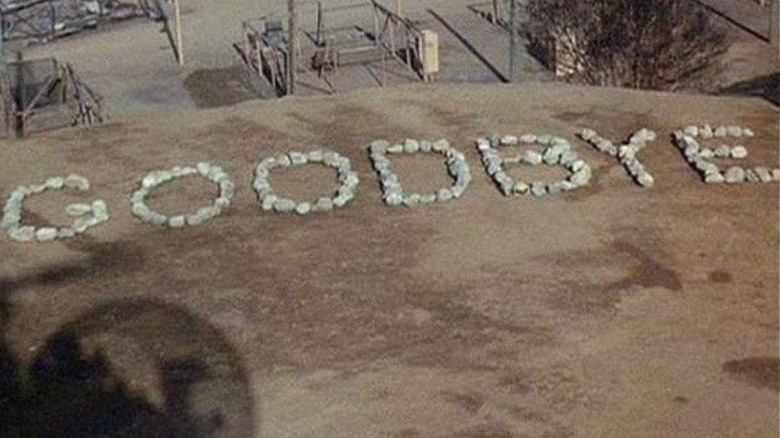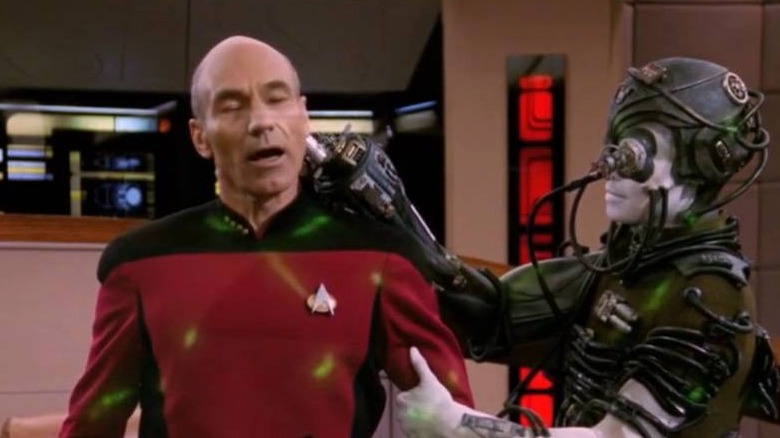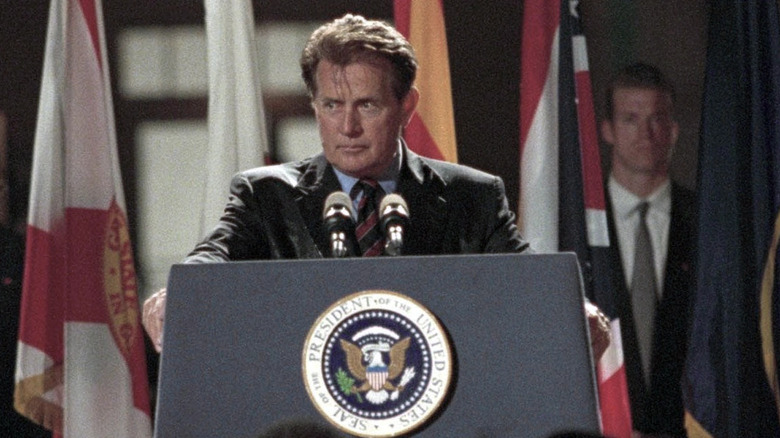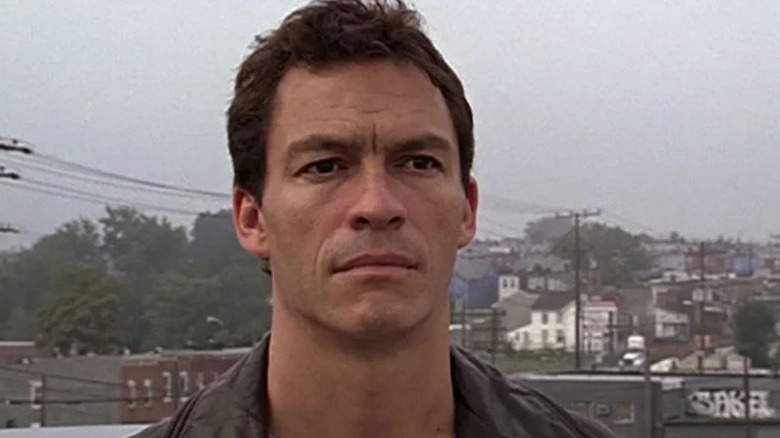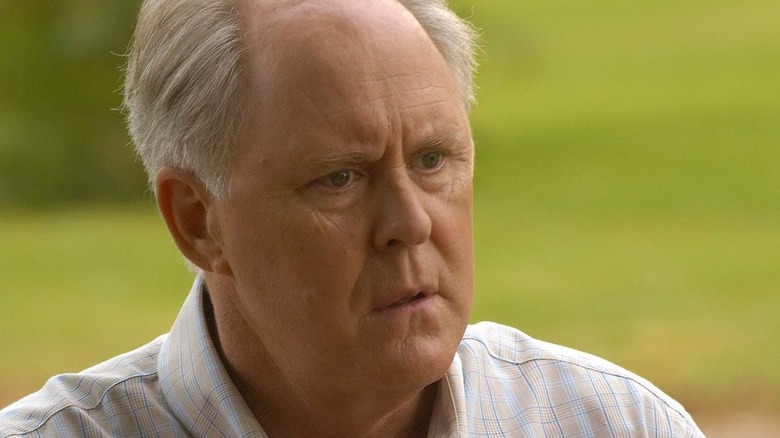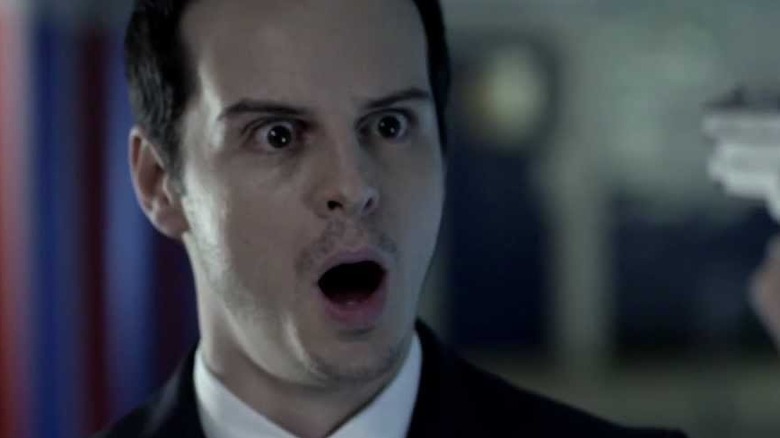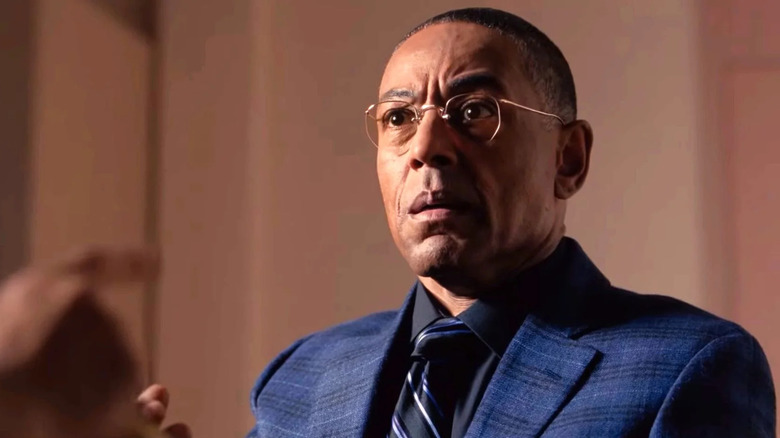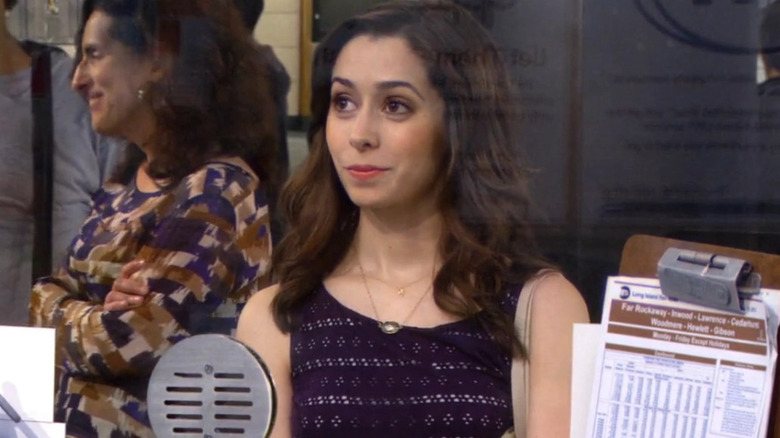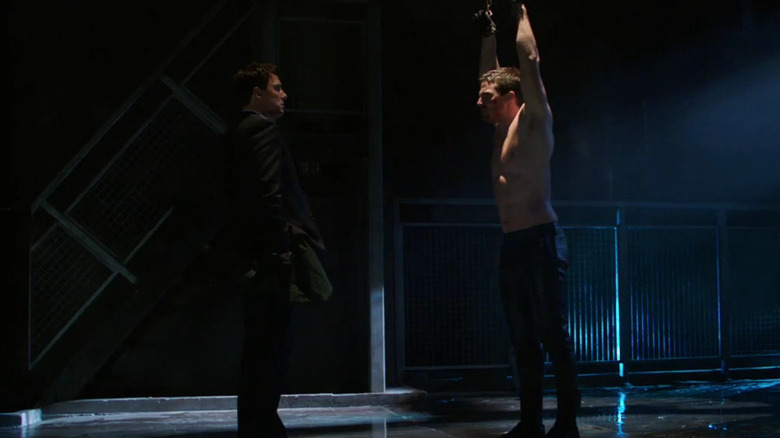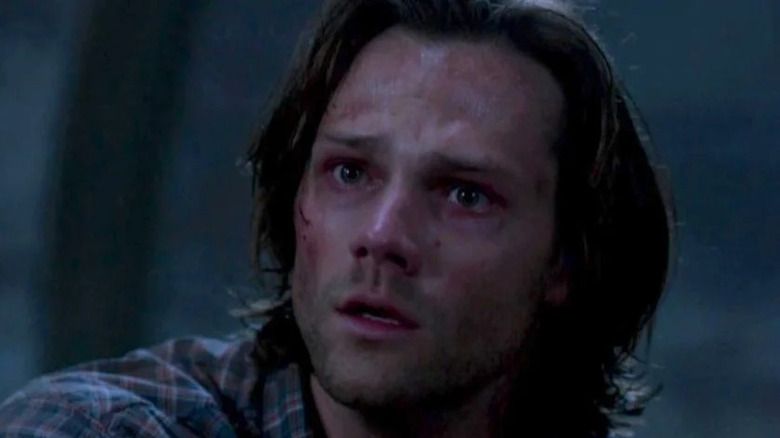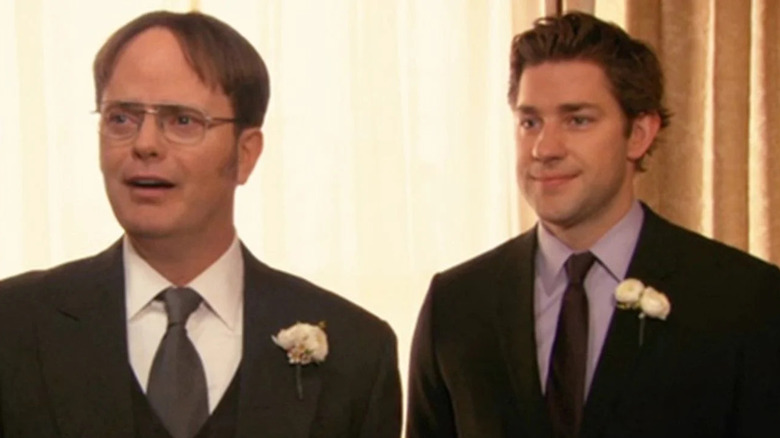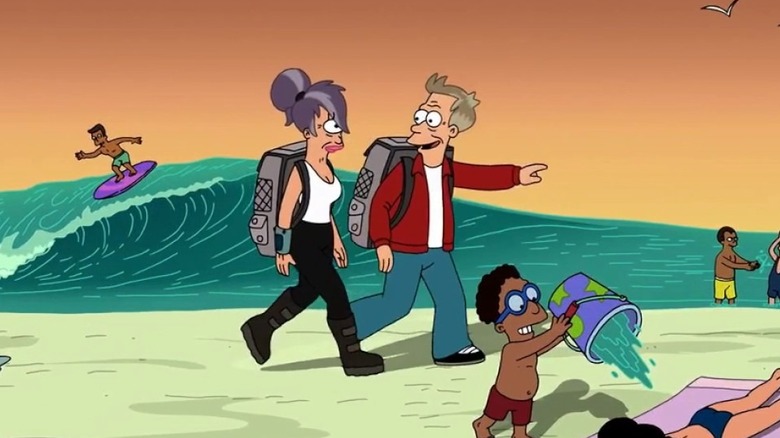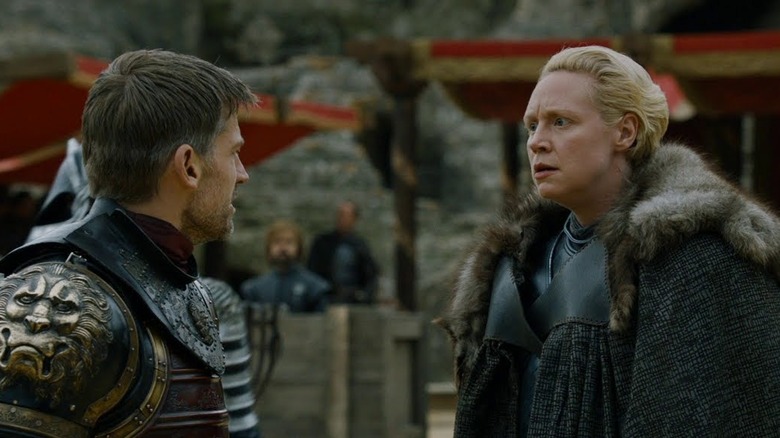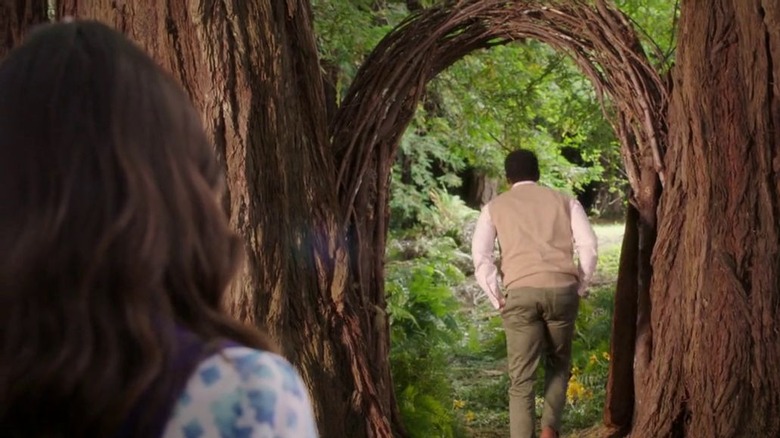TV Seasons That Save Their Best Episode For Last
Television season finales are tricky feats of long-form creative storytelling. On the one hand, a good finale should truly feel like the culmination of the overarching story running all season, tying together seemingly disparate plot threads and characters arcs for a satisfying payoff. On the other hand, unless the finale heralds the end of the entire series, a season's end should also leave enough questions unanswered for the story and its characters to continue and keep audiences hooked. A finale can make or break the audience's perception of the season as a whole, no matter how good the episodes before it may have been.
Here are the finales that clearly stand as the best episodes of their respective seasons, delivering on the convergence of plot threads to craft a thoroughly impressive conclusion to a season arc. The listed finales are not necessarily the best episodes in a given series overall or even the best season finale for each show; they're just examples of times when the conclusion was so good, it made everything that came before seem even better.
Goodbye, Farewell and Amen (M*A*S*H* Season 13)
While "M*A*S*H*" was consistently one of the most critically acclaimed series during its broadcast run, earning over 100 Emmy nominations and winning 14, it was also starting to show its age by the end. At 13 seasons, "M*A*S*H*" ran over four times longer than the Korean War it depicted and outlasted the Vietnam War it was protesting. Yet the series proved it was still an emotional powerhouse with its heartbreaking series finale "Goodbye, Farewell and Amen" in 1983.
In the final days of the Korean War, U.S. Army surgeon Hawkeye Pierce is under deep psychological evaluation after enduring a complete mental breakdown. As the horrifying circumstances behind what finally broke Hawkeye come to light, each of the medical camp's main characters endure their own tragic reminders of the costs of war. For a sitcom, "M*A*S*H*" closes its celebrated tenure on a particularly dark note. Then again, given its constant message that war is hell, it was never going to have a completely happy ending for its characters.
The Best of Both Worlds, Part 1 (Star Trek: The Next Generation Season 3)
For its first couple of seasons, "Star Trek: The Next Generation" struggled to find its own voice as it forged a new future for the science fiction franchise. By its third season, the series had not only visibly emerged from the shadow of its predecessor but also begun taking big creative risks the original "Star Trek" never attempted. This was evident in the Season 3 finale "The Best of Both Worlds, Part 1," which closed out the season with a cliffhanger that had audiences eagerly waiting for the subsequent season premiere.
As William Riker mulls over passing on opportunities to command his own ship in favor of remaining on the Enterprise, the ship faces a renewed push by the villainous Borg. This leads to Captain Jean-Luc Picard being turned into a Borg drone and used against his old crew as the ultimate weapon. Picard confronting the Enterprise as a Borg in the season's final moments catapulted "The Next Generation" ahead of viewer expectations as the show boldly went where no "Star Trek" had gone before.
Two Cathedrals (The West Wing Season 2)
Created by Aaron Sorkin, "The West Wing" is a masterclass in how to weave larger narrative payoffs while telling standalone stories. The series' Season 2 finale "Two Cathedrals" not only follows up on plot threads first introduced in the first season but also ends on a cliffhanger that spurred considerable interest in where the show would go next. The whole episode is elevated by a powerhouse performance from star Martin Sheen as the frustrated and overwhelmed President Josiah Bartlet.
As President Bartlet and the White House staff mourn the death of Bartlet's personal secretary Mrs. Landingham, a scandal is brewing for the administration. Season 1 revealed Bartlet and his closest associates covered up his multiple sclerosis diagnosis, a secret that could carry legal repercussions and derail Bartlet's chances for reelection. "Two Cathedrals" marked all of the crises and issues facing Bartlet coming to a head. With Barlet finally venting his grief and anger, the episode truly elevated "The West Wing" to the level of prestige television.
-30- (The Wire Season 5)
"The Wire" was known for its unflinching, gritty depiction of crime in Baltimore. It applied a similarly grim realism to its main characters, who were flawed and often paid the price for their mistakes in full. Fan-favorite character Jimmy McNulty had to pay the piper in the series finale "-30-." The finale did more than just deliver a reckoning for McNulty and his colleague Lester Freamon; it also drove home the point that the more things change, the more they stay the same.
Facing budget cuts to the police department, McNulty and Freamon tamper with crime scenes to suggest a serial killer is on the loose in Baltimore and feed this information to the media to generate increased support for the police. With their deception exposed, McNulty and Freamon are summarily drummed out of the city they've sworn to protect and serve. Meanwhile, a closing montage shows other characters embarking on their own new paths. "The Wire" is a case study in urban decay—decay that eventually consumes even the best among us.
The Getaway (Dexter Season 4)
The acclaimed Showtime series "Dexter" chronicled the murderous adventures of Dexter Morgan, the sinisterly charismatic protagonist who lived a double life as a serial killer in Miami. While Dexter certainly had close calls across the first several seasons, he managed to keep himself and his family free of deadly consequences stemming from his murderous secret. This all irrevocably comes to an end in the Season 4 finale "The Getaway," as Dexter's vendetta against the devious Trinity Killer takes a gruesome, personal toll.
Much of "Dexter" Season 4 involves a tense cat-and-mouse game between Dexter and Arthur Miller, a seemingly mild-mannered family man discovered to be the notorious Trinity Killer. By the end of the season, Arthur discovers Dexter's true identity. This changes the Morgan family forever and looms over the show and its continuation revival series, "Dexter: New Blood." Dexter Morgan has always been a character who managed to stay one step ahead of his prey, but those that hunted him but "The Getaway" made the cunning killer shockingly fallible.
The Great Game (Sherlock Season 1)
The first season of "Sherlock," which catapulted star Benedict Cumberbatch to worldwide fame for his portrayal of the master detective, is bookended by two truly spectacular episodes. While the series premiere introduced the threat of Sherlock's nemesis James Moriarty, the season finale pits the two masterminds directly against each other. Leading up to this face-to-face showdown is a gauntlet of challenges around London, pushing Sherlock Holmes to his absolute mental limit.
True to its premise, "Sherlock" succeeds when audiences get to see Cumberbatch's modern crime-solver imaginatively work his way through intricate puzzles. "The Great Game" is an episode full of seemingly standalone mysteries building up to its grand finale as Sherlock finally confronts the villain responsible. In Moriarty, Sherlock had finally found a true, antagonistic match, with the season ending on a cliffhanger that kept audiences at the edge of their seats.
Face Off (Breaking Bad Season 4)
Over the course of "Breaking Bad," high school chemistry teacher Walter White transformed into a manipulative drug kingpin, riveting television audiences. While many moments demonstrated just how morally bankrupt White had become, the Season 4 finale showcased the protagonist at his most cunning. In one fell swoop, White took on one of the most devious villains the show ever introduced while keeping his business partner, Jesse Pinkman, under his thumb.
Ever since White partnered with local crime lord Gustavo Fring, he realized he and Jesse were at his mercy. With his relationship with Fring becoming increasingly strained during Season 4, White is pushed to the breaking point before he pulls his last-minute victory. "Breaking Bad" works best when Walter White is backed into a corner and forced to think his way out of a predicament. "Face Off" delivers on this score.
Something New (How I Met Your Mother Season 8)
For years, "How I Met Your Mother" played the long game, teasing out the identity of protagonist Ted Mosby's future wife. Eight seasons in and the sitcom's overarching narrative began to feel like it was spinning its wheels through Ted's emotional rollercoaster of a love life. Fortunately, the Season 8 finale "Something New" not only revealed the mother but also set the stakes for the series' ninth and final season.
As divisive as the "How I Met Your Mother" series finale has remained among fans, the Season 8 finale promises a story to remember as it places each of its main characters at a crossroads. "Something New" delivers on the long-awaited promise of the series, giving audiences a glimpse of Ted's true love. "How I Met Your Mother" may have lost some of its momentum across its run, but the Season 8 finale got its groove back and officially kicked the show's endgame into motion.
Sacrifice (Arrow Season 1)
"Arrow" was always a sort of strange beast, a fact that tends to get lost amid all its spin-offs and shared universes. Grim and gritty, the series reimagined DC Comics superhero Green Arrow as a lethal vigilante who felt like an archery-themed mix between Batman and the Punisher. By the end of its first season, "Arrow" finally found its rhythm in a truly spectacular final episode that defined the show and its approach to protagonist Oliver Queen.
The Season 1 finale "Sacrifice" featured Ollie's epic showdown with the Dark Archer, revealed earlier in the Season to be longtime family friend Malcolm Merlyn. As flashbacks reveal how Ollie became adept at archery, the present-day storyline demonstrates these skills aren't quite enough to save the day, with Merlyn emerging triumphant. No season finale of "Arrow" delivered the same amount of tragedy and consequence as the superhero show finally found its voice.
Sacrifice (Supernatural Season 8)
Yes, The CW aired season finales of its two biggest series on the same day, with both episodes sharing the same title. While "Supernatural" creator Eric Kripke initially pitched the horror drama series to conclude with its fifth season, the Season 8 finale "Sacrifice" proved there were plenty of surprises still to be had. As Sam Winchester undergoes a set of trials to protect Earth from demons, his brother Dean faces his own divine test from heavenly angels.
Although Dean and Sam came back from the dead so often in the show that it became something of a joke, the stakes in the Season 8 finale were still high, with both brothers poised to make the ultimate sacrifice. Castiel and Crowley both lost their powers, adding to the intensity. "Supernatural" went on to run for a staggering seven more seasons, but "Sacrifice" reminded audiences that the show still had some tricks left up its sleeve. The Season 8 finale stands out as a harrowing convergence of all its epic plot threads.
Finale (The Office Season 9)
While "The Office" remains to be one of NBCUniversal's most popular sitcoms, the show definitely took a turn when it lost its original series star Steve Carell. Ed Helms' character Andy Bernard nominally took charge of the workplace, but the show's final two seasons felt directionless for its fan-favorite cast. While the ninth and final season is widely regarded as an improvement over its predecessor, it isn't until the series finale that its story clicks into place.
"The Office's" narrative setup was about a documentary being produced chronicling the staff of a paper company working out of Scranton, Pennsylvania. The final episode, aptly titled "Finale," jumps ahead a year in the future after the documentary finally premieres, with the characters reuniting to reflect on their journey together. "Finale" really hammers home how much the audience has come to love these characters in the show's bittersweet farewell.
Meanwhile (Futurama Season 7)
With its change in networks and uncertainty regarding its own future, the animated series "Futurama" has crafted plenty of season finales that could work as the series' last episode. However, the one that worked the best was its Season 7 finale, "Meanwhile," which closed out the show's run on Comedy Central. For a show with a surprising amount of heart, "Futurama" saved its most poignant note for the presumed end of Season 7.
As Fry prepares to use one of Professor Farnsworth's devices to stage the perfect scenario to propose to his longtime love Leela, the time-manipulating invention malfunctions. Mixing the usual sci-fi peril that Fry would place himself in with the joy of seeing Fry and Leela's romance reach its sentimental apex, "Meanwhile" is a pitch-perfect ending. An absolute powerhouse of an episode, the intended series finale sets a high bar for "Futurama" as it makes its return for new episodes on Hulu.
The Dragon and the Wolf (Game of Thrones Season 7)
HBO's "Game of Thrones" may have left audiences (and its actors) divided over its series finale, but the epic fantasy drama set high expectations with its Season 7 closer "The Dragon and the Wolf." With the threat of the White Walkers bearing down on the continent of Westeros, Jon Snow and Daenerys Targaryen appeal to the other houses to stand together against the undead army. As "Game of Thrones" finally brings its pieces together to set up the eighth and final season, the series leans into what it does best.
From longtime rivals finally coming face-to-face to Petyr Baelish being outsmarted at his own manipulative game, "The Dragon and the Wolf" is the show firing on all cylinders. The episode also delivers one of the series' best cliffhanger endings between seasons, as the Wall that historically kept Westeros safe finally comes crashing down. "Game of Thrones" was always full of nail-biting anxiety since no character was safe, but the Season 7 finale pulled out all the stops.
No Mercy (Cobra Kai Season 2)
Following in the footsteps of "The Karate Kid," the legacy sequel series "Cobra Kai" has introduced its own generation of martial arts rivalries stemming from Daniel LaRusso and Johnny Lawrence's feud. While the students of Daniel's Miyagi-Do karate school and Johnny's Cobra Kai dojo squared off before, nothing has impacted the show's trajectory quite like the Season 2 finale "No Mercy." After months of mounting tension, the two dojos battle each other in the halls of their high school. The fight quickly goes off the rails, with tragic consequences.
"Cobra Kai" had plenty of thrilling fight sequences before, but nothing quite like the climactic high school brawl at the end of Season 2, and arguably none like it since. In a truly impressive technical feat, an extended, unbroken take follows the two dojos trading blows as season-long tension explodes. "Cobra Kai" has always successfully blended nostalgia with modernizing "The Karate Kid" legacy, and the Season 2 finale shows just how far its young cast has come.
Whenever You're Ready (The Good Place Season 4)
Compared to some other shows on this list, "The Good Place" intentionally ended its run at the top of its game rather than attempting to inflate and extend its overarching story. As such, series creator Michael Schur mapped out a trajectory for the show that concluded its story with its fourth season. The series finale "Whenever You're Ready" delivers on the show's concurrent themes of mortality as it delves into the happy endings of its main characters.
"The Good Place" was always packed with jokes, but brought in a surprising amount of genuine heart behind its characters, especially in its later seasons. The series finale gave each of its main characters the opportunity to reflect on their own eternal existence, with some opting to continue and others ready for the one last farewell. For what began as a relatively nonsensical comedy about the possibilities of the afterlife, "The Good Place" saved its ultimate philosophical and emotional payoff for its curtain call.

